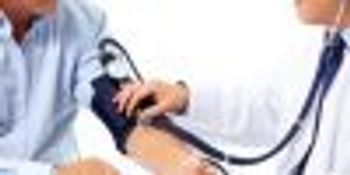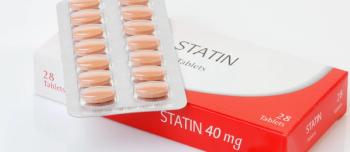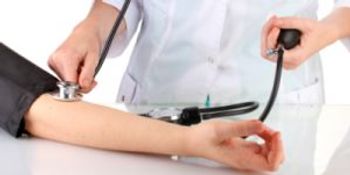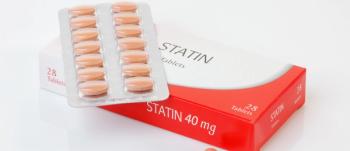
Thiazide diuretics are the least expensive antihypertensive drugs available in most countries.

Thiazide diuretics are the least expensive antihypertensive drugs available in most countries.

Here are the key points and rationale behind the lower blood pressure target.

The drug is indicated for cardiac event prophylaxis or treatment in adult patients in the United States with heparin-induced thrombocytopenia.

The JNC 8 guidelines are based on 27 large clinical trials that are often discussed in isolation, but have never been aggregated into a single source until now.

A new cardiovascular risk estimator can accurately predict heart disease and stroke risk for anyone in the world aged 40 years or older.

While the FDA only recommends daily aspirin for patients who have experienced major cardiovascular events, about half of older adults in the United States take aspirin regularly.

Pharmacist-driven drug management programs best ensure atrial fibrillation patients adhere to the warfarin alternative, dabigatran (Pradaxa).

Today's approval of Amgen's ivabradine makes it the first new chronic heart failure medicine that has been approved by the FDA in almost a decade.

Patients who use mobile-based telemonitoring systems for heart failure self-management feel more connected to the health care team.

Accurate blood pressure measurement is key in detecting hypertensive disorders that contribute to more than half of all maternal deaths.

Pharmacists can improve a patient's medication adherence by dispensing information beyond a drug's label.

Patrick Curtin, PharmD, BCPS, Clinical Coordinator at Overlook Medical Center in Summit, New Jersey, addresses how to gauge 10-year atherosclerotic cardiovascular disease risk for patients relative to lifestyle, cholesterol, and obesity.

Patrick Curtin, PharmD, BCPS, Clinical Coordinator at Overlook Medical Center in Summit, New Jersey, identifies some notable changes to previous guidelines as presented in the 2013 ACC/AHA Guidelines on the Treatment of Blood Cholesterol to Reduce Atherosclerotic Cardiovascular Risk in Adults.

Energy drink overconsumption has dangerous cardiac and neurologic consequences in adolescents.

Showing gratitude may provide physical benefits to heart failure (HF) patients.

Applying pediatric lipid guidelines to adolescents might result in more than 400,000 additional young adults taking statins.

Despite a 39% decrease in age-specific mortality rates, deaths related to cardiovascular disease increased by 41% globally between 1990 and 2013.

Actavis is seeking FDA approval for its generic version of Gilead Sciences' Letairis pulmonary arterial hypertension treatment.

Readmission rates among patients with heart failure, acute myocardial infarction, and pneumonia increase when psychiatric illness is also present.

Changes to the prescribing information for alteplase (Activase) recently flew in under the radar.

Teva, Mylan, and Sandoz announced the US launches of their generic equivalents to Novartis's Exforge.

Medtronic's CoreValve System is now approved for first-of-its-kind "valve-in-valve" replacement.

A veritable alphabet soup of hypertension guidelines have been released over the past year. Here is what you need to know.

Veterans with post-traumatic stress disorder face greater odds of developing heart failure.

Patients with limited life expectancy may see improvement in their quality of life if they stop taking statins.